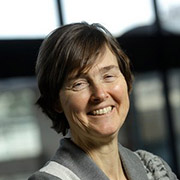A .gov website belongs to an official government organization in the United States.
A lock () or https:// means you've safely connected to the .gov website. Share sensitive information only on official, secure websites.

In the 19th and 20th century the chemical composition of the atmosphere did change drastically as a result of human activities. Therefore, the Dutch Nobel Prize winner Paul Crutzen called this time period the 'anthropogenic' epoch. The rapid worldwide growth of megacities, and its associated strong increase in air pollution, are clear examples of this. These are developments that will continue to be important in the coming decades, even with the agreements made during the recent UN climate change conferences and the Global Methane Pledge to reduce methane emission with 30 % by 2030.
Nowadays we can measure the chemical composition of the atmosphere with satellites. With innovative satellite instruments of Dutch origin, such as OMI and TROPOMI, daily global maps of air pollution and greenhouse gases are measured on urban scale resolution.
In this seminar I will start with an overview of NCAR/ACOM and the new initiatives we are working on before I will entirely focus on satellite observations from space. An outline will be given of the major research questions in the atmospheric climate domain, and their importance for air quality and climate policy. Further, OMI's and TROPOMI's satellite measurement technique will be explained, and what these measurements can bring for as well research as climate policy, now and in the future. Examples of COVID-19 lockdown reduction of air pollution, air pollution from wildfires, methane emissions from fossil fuel industry and landfills, as well as a new satellite concept (NITROSAT) measuring agriculture emissions will be discussed. I will end my seminar advocating for geostationary satellite measurements over the Global South, with a focus on Africa. Recent findings on Africa air quality, based on TROPOMI data, will be shown.
Dr.Pieternel Levelt is director of NCAR Atmospheric Chemistry Observations & Modeling Laboratory (ACOM) in Boulder, Colorado since June 2021. Before that she was for more than a decade department head of the R&D department on Satellite Observations at KNMI (Royal Netherlands Meteorological Institute) in The Netherlands. She still is affiliated to KNMI, and also to University of Technology Delft, where she is professor in Remote Sensing of the Earth Atmosphere. She is further Principal Investigator of the Ozone Monitoring Instrument (OMI) and scientific founder of the Tropospheric Monitoring Instrument (TROPOMI).
ALL Seminar attendees agree not to cite, quote, copy, or distribute material presented without the explicit written consent of the seminar presenter. Any opinions expressed in this seminar are those of the speaker alone and do not necessarily reflect the opinions of NOAA or CSL.